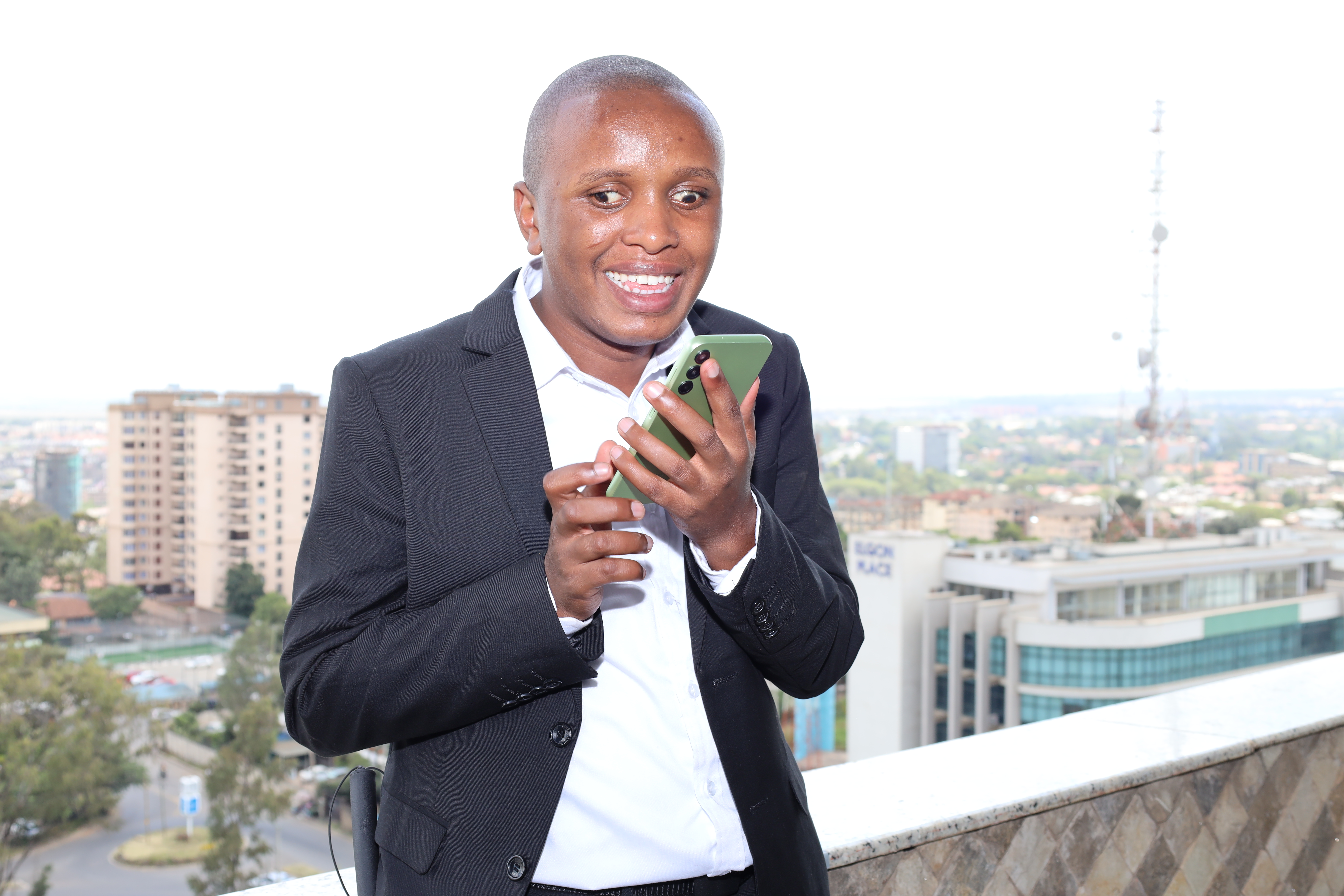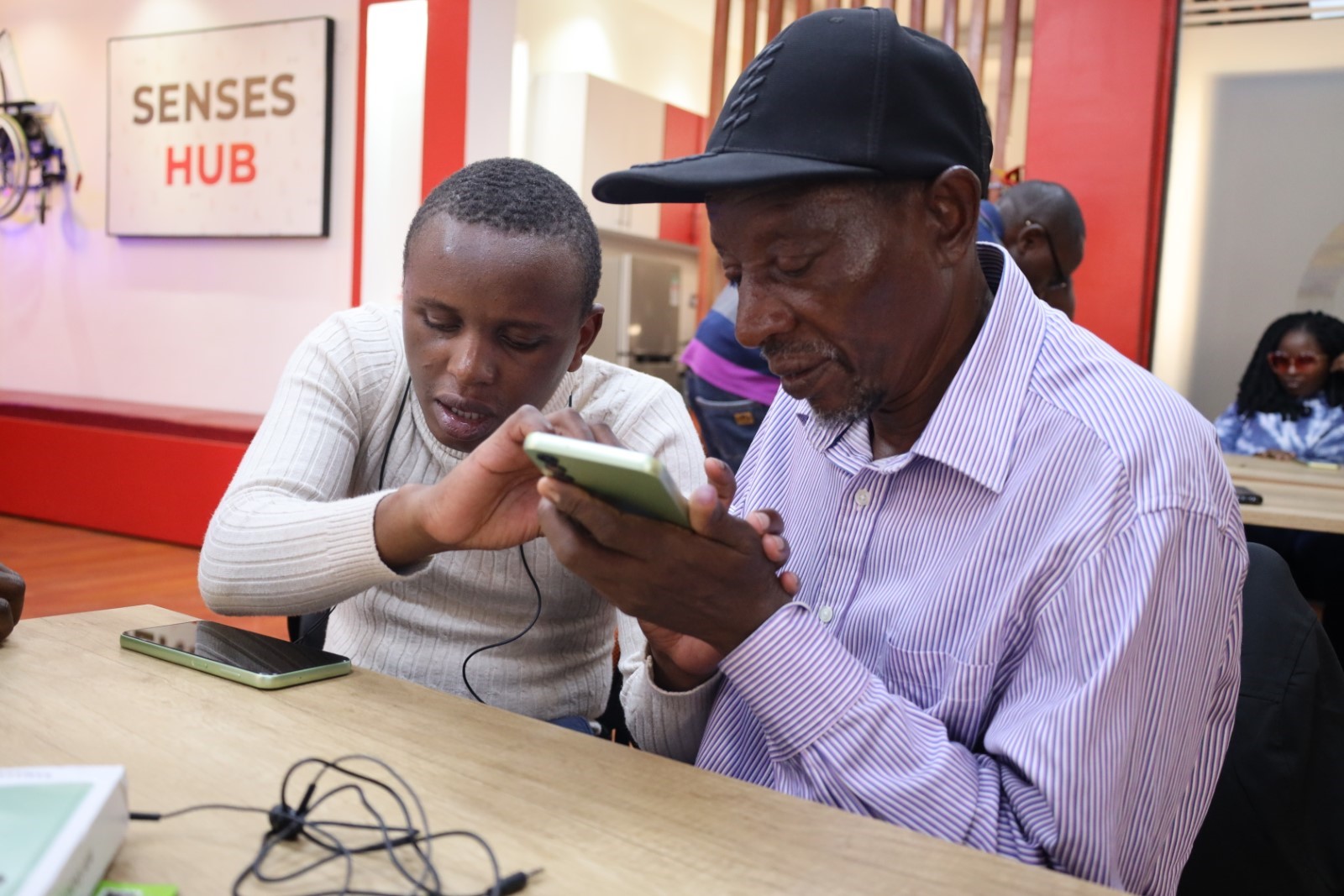Digital assistive technology - Joseph's story

John Mwangi, a recent graduate specializing in Special Needs Education from Kenyatta University, shares his transformative journey. Mwangi, who received a phone, illuminates the indispensable role his mobile device plays in various practical tasks, ranging from reading and staying informed to making phone calls and engaging in personal activities.
Highlighting the significance of the training held last year, Mwangi praises applications like Google Lookout, which empowers him to navigate his surroundings independently. His mobile device aids him in identifying objects and recognizing different currencies, enhancing his overall spatial awareness.
“Through google lookout, I am able to identify currencies and also the colour of clothes I am wearing” Says Mwangi.
Valuable applications like Chrome prove essential for Mwangi's role as a teacher, providing access to crucial information. Despite facing challenges with the speed of the Talk back feature, he advocates for the pragmatic use of mobile phones as assistive technology, emphasizing their portability, communication capabilities, and diverse applications.
In a hypothetical scenario addressing a crowd, Mwangi passionately advocates for the practical use of mobile phones as assistive technology for individuals with visual impairments. He acknowledges the need for patience and adaptation in integrating technology into daily routines. Mwangi extends genuine appreciation to the organizations contributing to his adaptability, emphasizing the continued support needed for individuals with visual impairments without romanticizing their challenges.
Mwangi's story serves as a realistic portrayal of the intersection between technology and disability, showcasing the everyday impact on individuals' lives. It echoes a larger narrative unfolding on a global scale, where smartphones are emerging as powerful tools to transform the lives of persons with disabilities.

This research project is spearheaded by UCL's Global Disability Innovation Hub (GDI Hub), supported by AT2030 funded by UK Aid, Google, and AT Scale, is at the forefront of exploring the potential of mobile phones as assistive technology (AT) in India, Brazil, and Kenya In collaboration with local partners.
The research aims to measure the profound impact on the quality of life, with findings intended to inform future developments and global accessibility interventions. Previous research by AT Scale and GDI Hub revealed a significant disparity in mobile phone ownership, especially in low- and middle-income countries. The project, funded by UK Aid, Google, and AT Scale, aims to bridge this gap, ensuring wider accessibility and adoption of assistive technologies, particularly for persons with disabilities. The combination of Mwangi's personal journey and the global initiative underscores the transformative potential of mobile phones as assistive technology on a broader scale.